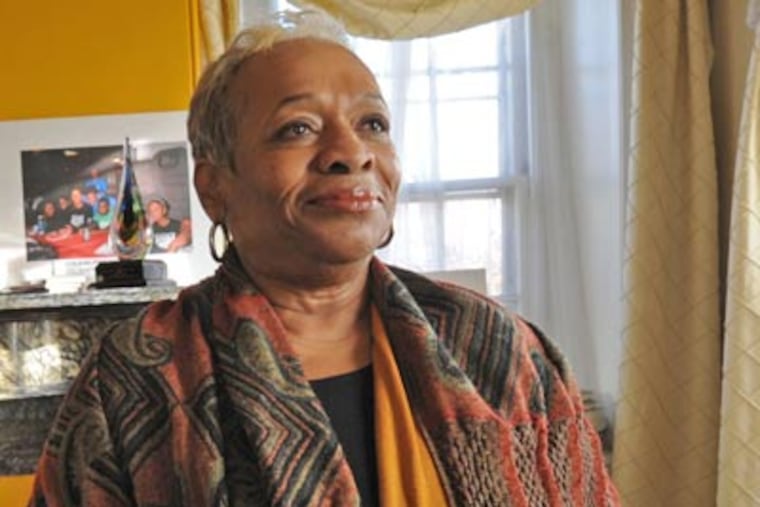Help in dealing with the pain
After her son was killed, woman started a nonprofit to aid families of other victims.

After 20-year-old Emir Greene was shot to death on the night of March 26, 1997, Victoria Greene spent months dealing with trauma and grief from the loss of her only son. She would have deep depression one minute, violent rages the next.
"Initially, I was suicidal and I was homicidal," said Greene, 63. "The pain was so bad, I didn't want to live, and then I became so angry that I wanted the person caught."
Greene said her rage caused her to lash out during support-group sessions in the now defunct non-profit Grief Assistance Program, and almost caused a revolt during one meeting when her frustration boiled over.
"I said, 'I'm not here for forgiveness. I'm tired of waiting for the police, I'm tired of people telling me to wait. I can buy a gun like they purchase guns. I know where this person lives at, I can go on the street and wait for him and shoot him," Greene recalled, adding that her words drew raucous support from the women in her group.
She credits those sessions, run by the Medical Examiner's Office, with saving her life by teaching her to deal with the pain. Because of the impact of the program and the number of people she saw counseled, Greene started her own nonprofit, called Every Murder Is Real - or EMIR, after her son's name - to help homicide victims' families and friends deal with the trauma.
"It's really important to be educated about trauma because you think that you are crazy," said Greene, a retired city prison social worker. "It's very important for a person to realize, 'No, I'm not going crazy, this is what happens to a person that goes through trauma.' "
"We needed to help others," added Chantay Love, the group's program director and Emir Greene's sister. "We knew we weren't the only ones who were going through this."
The group started by holding two conferences, in 1999 at Rosemont College and in 2001 Temple University, on drug-related homicide. Greene, with help from her four daughters, would also travel to youth facilities and present her family's story.
In 2004, the group gained nonprofit status and started helping victims' families. Initially, members would provide emergency food to families and hold support groups at the Joseph E. Coleman Northwest Regional Library in Germantown.
Today, EMIR has its own office on the 5200 block of Germantown Avenue, an old parish house that it has rented from Advocate/St. Stephen's United Methodist Church since 2008. The group has three staff members and 25 volunteers who work with about 100 families per year, Greene said.
EMIR operates on donations and a grant through the Department of Behavioral Health.
Each Wednesday, EMIR gets a fax from the Police Department noting every homicide victim of the previous week and contact information for the family.
Sharon Thaxton's family came to participate in the organization after her son, 32-year-old Jason Patton-Thompas, was gunned down after a fight in the Tioga-Nicetown section. Thaxton said EMIR allowed the family to find direction after the shock of the killing.
"When you find out, you're numb, it's surreal," Thaxton said. "I didn't know what I was going to do next."
At first, EMIR helped the family take the appropriate steps to receive victim's compensation. The 64-year-old retired principal's family then participated in six weeks of suppor sessions with the group.
"They gave us coping skills," said Thaxton, who now volunteers with the organization. "But the pain never goes away."
Emir's killer, Steven Holiday, was convicted of first-degree murder in December 1997 and sentenced to life in prison. Greene says her son was shot by two people who pulled up separately in cars. She said the second person was never identified and Holiday shot her son first, in the back, as he got out of Holiday's car.
Greene said that from what she understands, her son was selling drugs for Holiday. She said one of the most debilitating things in dealing with trauma is when sympathy is not given to the family because the person was involved in criminal activity.
While the deaths come from violence, she said, education can prevent murders in the future.
"What I don't think people understand is that if we work with families who have experienced homicide or violent crime, then we can prevent future violence," Greene said.